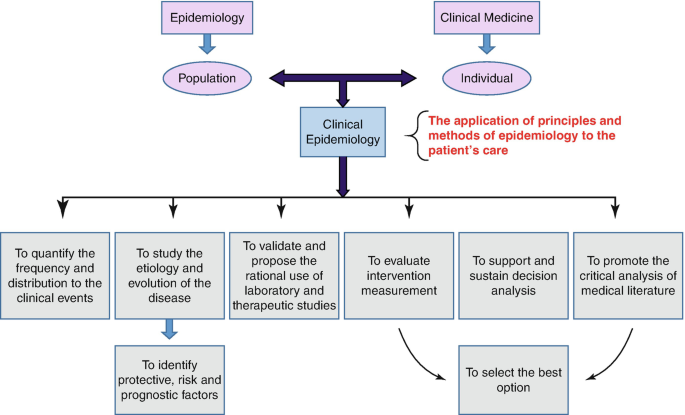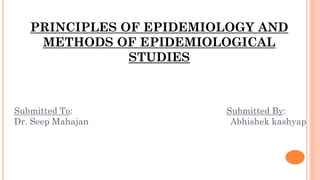What Are The Fundamental Principles Of Epidemiology?
Epidemiological Studies: A Beginners Guide
Keywords searched by users: What are principles of epidemiology principles of epidemiology pdf, principles of epidemiology ppt, principles of epidemiology – wikipedia, principles of epidemiology cdc, what is distribution in epidemiology, principles of epidemiology book, 5 principles of epidemiology, specified population in epidemiology
What Are The Three Principles Of Epidemiology?
The three fundamental principles of epidemiology are crucial for a comprehensive understanding of the field. These principles encompass:
-
Transparency in Outcome Prediction: It is essential to openly disclose and engage in discussions about anticipated outcomes in epidemiological studies. This principle promotes transparency and helps stakeholders gain a clear understanding of what to expect from the research.
-
Comprehensive Data Comprehension: A thorough comprehension of key data within the study is imperative. This involves not only understanding the data itself but also recognizing the factors that influence it and acknowledging its inherent variability. Such insights are pivotal in interpreting and drawing meaningful conclusions from epidemiological research.
-
Detailed Exposure Characterization: Whether examining occupational or personal risk factors, meticulous exposure characterization plays a vital role in epidemiology. This principle underscores the importance of accurately describing and quantifying exposures, facilitating a more precise assessment of their impact on health outcomes.
By adhering to these three principles, epidemiologists can conduct more rigorous and insightful research, ultimately contributing to a better understanding of public health issues and the development of effective interventions.
What Is The Principle Of Epidemiology In Public Health Practice?
The principle of epidemiology in public health practice encompasses several key aspects. Firstly, epidemiology serves as a quantitative foundational science that relies on a solid understanding of probability, statistics, and rigorous research methodologies. This scientific foundation enables epidemiologists to collect, analyze, and interpret data related to health outcomes in populations.
Secondly, epidemiology involves a method of causal reasoning. It revolves around the formulation and testing of hypotheses that pertain to the occurrence and prevention of morbidity (illness) and mortality (death). By identifying potential causal relationships, epidemiologists strive to uncover the factors and determinants that contribute to health problems within communities.
Lastly, epidemiology functions as a practical tool for public health action. It bridges the gap between research findings and real-world interventions. Epidemiologists use their insights and evidence-based conclusions to inform public health policies and strategies aimed at improving the health and well-being of communities. This multifaceted approach to epidemiology plays a critical role in addressing public health challenges and promoting better health outcomes for populations.
What Are The 5 Main Objectives Of Epidemiology?
Epidemiology serves several crucial objectives that are essential in understanding and managing diseases effectively. These objectives encompass:
-
Identifying Disease Etiology: One of the primary goals of epidemiology is to uncover the underlying causes and risk factors behind diseases. This involves investigating what factors, such as genetic, environmental, or behavioral, contribute to the development of a specific health condition.
-
Measuring Disease Burden: Epidemiologists aim to determine the prevalence and incidence of diseases within a population. This provides insights into how common a disease is and how it may be distributed across different groups or regions.
-
Studying Disease Progression: Epidemiology involves tracking the natural history of diseases, which means understanding how diseases develop, evolve, and potentially lead to complications over time. This information helps in predicting disease outcomes and planning appropriate interventions.
-
Assessing Prevention and Treatment Strategies: Epidemiologists evaluate various preventive measures and treatments to assess their effectiveness. This crucial step helps healthcare professionals and policymakers make informed decisions about the most suitable interventions for controlling or managing diseases.
-
Informing Public Health Policies: Epidemiological findings play a pivotal role in shaping public health policies. Policymakers rely on epidemiological data to design strategies for disease prevention, control, and healthcare resource allocation, ensuring the well-being of communities.
In summary, epidemiology encompasses a broad range of objectives, from uncovering disease causes and measuring their prevalence to understanding disease progression and evaluating intervention strategies. These objectives are instrumental in guiding public health efforts and improving overall community health.
Top 9 What are principles of epidemiology








Categories: Top 81 What Are Principles Of Epidemiology
See more here: c3.castu.org

Epidemiology is “the study of disease in populations and of factors that determine its occurrence over time.” The purpose is to describe and identify opportunities for intervention.These principles are: (1) that outcome foreknowledge should be disclosed and discussed; (2) that key data in the study should be well understood to include what influences it and its inherent variability; and (3) that detailed exposure characterization, whether it be occupational or personal risk factors, should be an …Epidemiology is: a) a quantitative basic science built on a working knowledge of probability, statistics, and sound research methods; b) a method of causal reasoning based on developing and testing hypotheses pertaining to occurrence and prevention of morbidity and mortality; and c) a tool for public health action to …
- identify the etiology or cause of disease.
- determine the extent of disease.
- study the progression of the disease.
- evaluate preventive and therapeutic measures for a disease or condition.
- develop public health policy.
Learn more about the topic What are principles of epidemiology.
- Basic Principles of Epidemiology – Public Health
- Three basic principles for improving epidemiology: an industry view
- Principles of Epidemiology – CDC stacks
- Lesson 1 – Introduction to Epidemiology – STAT ONLINE
- Principles of Epidemiology – Delaware Health and Social Services
- The Four Principles of Biomedical Ethics – Healthcare Ethics and Law
See more: c3.castu.org/category/fashion